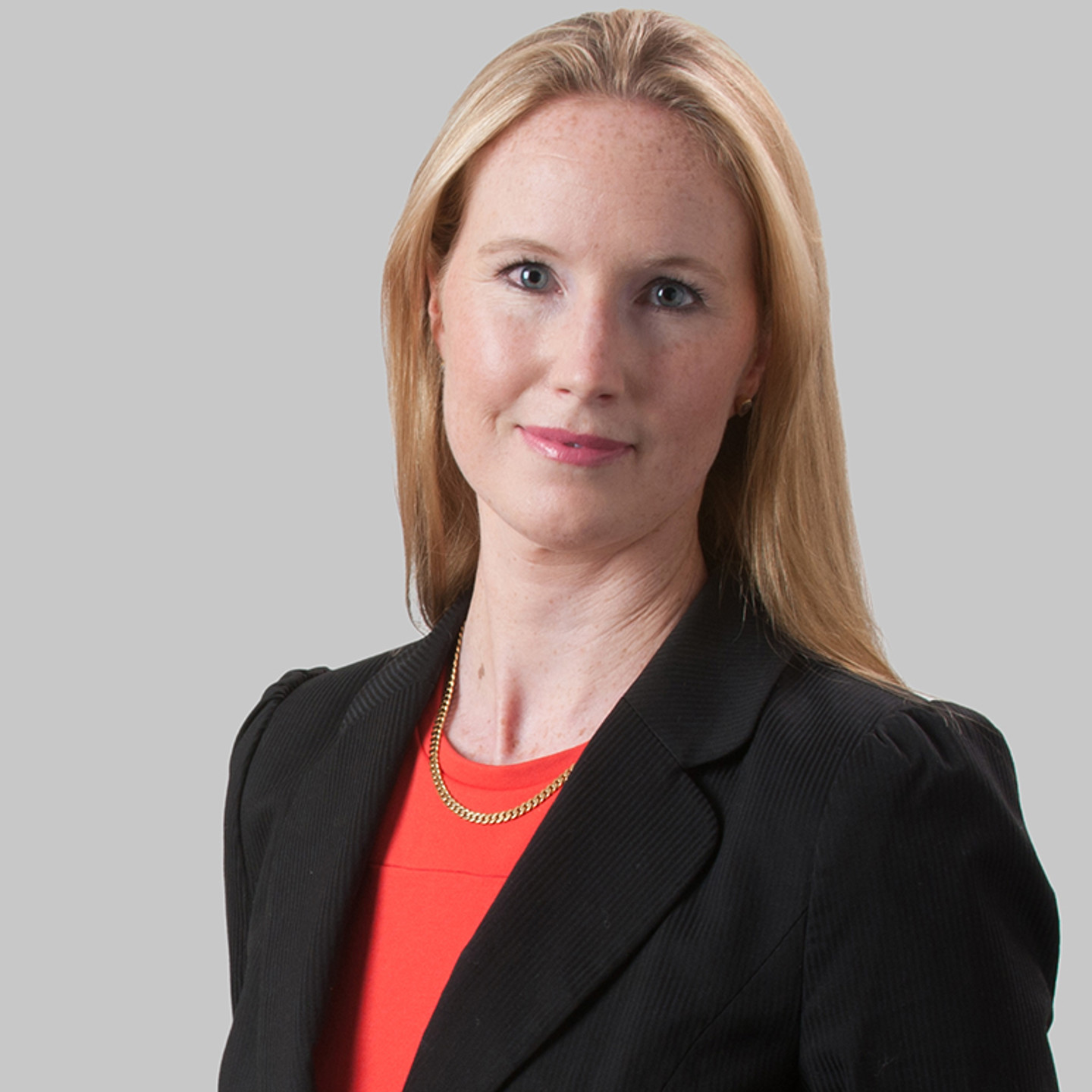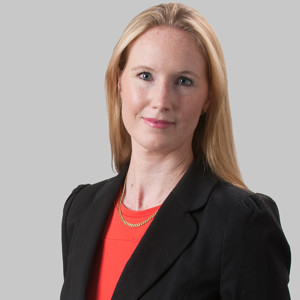
Kate Hodson 凯特 ·赫臣
Partner and Head of ESG (Legal) 合伙人 | Legal
Hong Kong

Kate Hodson 凯特 ·赫臣
Partner and Head of ESG (Legal) 合伙人
Hong Kong
No Content Set
Exception:
Website.Models.ViewModels.Components.General.Banners.BannerComponentVm
Ogier investment funds partner Kate Hodson has significant experience in the Japanese hedge fund sector from the firm's Hong Kong office. In this Q&A, excerpted from the recent Opalesque roundtable event with representatives from BNY Mellon Japan, Misaki Capital and Rogers Investment Advisers, Kate gave her view on current market trends.
What are the current trends in fund establishment in Japan?
Ogier has long been active in the Japanese funds market and we have enjoyed working with a number of startup managers here, helping them to launch hedge funds and some private equity funds. However, many of the non-institutional managers we work with tend to have based their asset management team in Singapore or in Hong Kong. A lot of these managers would like to be based in Japan but various factors have counted against this. There are of course a number of contributors, tax is one of them but it's not the only factor. Set-up costs and time to license can also be an issue. It can take up to 12 months or even as long as 18 months in some cases. However, as further discussed in the roundtable report, some of these issues are beginning to be addressed. Last year Keiichi Aritomo was involved in the founding of The Consortium for Japan International Asset Management Center Promotion (JIAM), of which Ogier is also a sponsor. JIAM's mission is to promote Tokyo as a financial center to attract more alternative and independent asset managers and offers business launch support for asset managers. The report discusses some of the JIAM's projects and also looks at the new Emerging Manager Program, which is going to be launched and subsidized by the Tokyo Metropolitan Government and the FSA's new fast track procedure.
What about private wealth trends - in what ways do practices in Japan stand out from the rest of Asia?
During the round table we discussed the shrinking and aging society in Japan which is heavily dependent on public pension funds for income, whereas elsewhere in Asia we see a greater amount of more proactive and aggressive wealth management. The family office is a relatively new concept in Asia, however the sharp rise in the number of high net and ultra-high-net-worth persons (the biggest growth being in China, with Hong Kong and Singapore in its wake) has seen a small explosion of single and multi-family offices in the region. Hong Kong and Singapore provide a tax-efficient environment governed by common law. In addition, the regulatory environment there is mature. We receive many requests from clients in Hong Kong, Singapore and China to assist on the set-up of a "family office" . In reality many of these clients want a management company, a fund and perhaps a few separate holding companies for their traditional businesses. These can be tied together with a holding structure that provides some form of succession planning.
What about generational trends?
Coming out of the investment banks or their own successful entrepreneurial endeavours, the young to middle aged generation are interested in managing their own wealth and often that of others (hence the driver for the family office fund structures I was just talking about). Japan on the other hand is an untapped family office destination. There are the people and the money, however traditionally, wealthy individuals have tended to hold their assets in cash, stocks and property. The emerging new wealth generation are more adept at managing their businesses and assets and perhaps the family office is a trend which will slowly start to take off here in Japan as well. I don’t think we should expect to see an immediate expansion in this area, it will likely take some time. On the other hand there really is a spirit in Hong Kong and Singapore that "things can be done" and they can be done quick. The industry has evolved around that with a number of platform providers, cost effective solutions for fund administration, brokerage etc this means that there are plenty of lower cost and quick to market options. This heightened level of access has lot of positives but it is not without its downsides as with that also comes plenty of outfits with limited sophistication. I don’t see this when it comes to our Japanese fund manager clients where the approach is more steady. One of the points picked up on in the report has been the FSA's conservatism when licensing new managers with the suggestion that this is driven by the desire to avoid failure. Whereas in Hong Kong and Singapore, there appears to be more acceptance that this is a risk based business and that not all managers will succeed. This is something that needs to be addressed if we are going to see the number of assets managers in Japan grow above the current low levels.
From the perspective of international investors, what is the perception of Japan today?
For all the reasons we are so positive about Japan and in some ways negative about it, there is no question that Japan is attracting a lot of outside interest. We are seeing more and more enquiries, from abroad, in particular from US clients who are looking at opportunities to set up unit trust structures to manage money for Japanese investors. They are looking for opportunities to co-operate with gate keepers and large institutional allocators including pension funds, to manage funds for Japanese investors. We typically see an offshore fund, a Cayman Islands unit trust, managed by the foreign manager, with an independent trustee or bank trustee and the sole investor is a Japanese distributor, behind which sits a Japanese investment trust with domestic investors.
How do you expect things to change over 2018?
With the improved performance of hedge funds over the last year I think allocators now have an opportunity to re-evaluate how they want to be diversified and to consider increasing their allocations in this sector. There is opportunity there but there also continues to be competition which should hopefully continue to drive innovation. What is promising is that we are starting to see more enquiries again from new managers in Japan. Most of the funds I have worked with over this last year have been with the big institutions, security houses, not many startup managers. We'll have to see how that pans-out in 2018 but we are probably more hopeful about this than we were at the start of 2017.
About the Roundtable Series
Ogier was proud to sponsor the Japan Opalesque Roundtable Series' 18 - you can read the full version here. The roundtable participants explored topics such as how the Japanese regulator has changed over the last few years, what is the silver bullet to help grow the Japanese funds industry to take advantage of the "18 trillion honey pot" and how are foreign investment managers gaining access to manage Japanese money.

Kate Hodson 凯特 ·赫臣
Partner and Head of ESG (Legal) 合伙人 | Legal
Hong Kong

Kate Hodson 凯特 ·赫臣
Partner and Head of ESG (Legal) 合伙人
Hong Kong
Ogier is a professional services firm with the knowledge and expertise to handle the most demanding and complex transactions and provide expert, efficient and cost-effective services to all our clients. We regularly win awards for the quality of our client service, our work and our people.
This client briefing has been prepared for clients and professional associates of Ogier. The information and expressions of opinion which it contains are not intended to be a comprehensive study or to provide legal advice and should not be treated as a substitute for specific advice concerning individual situations.
Regulatory information can be found under Legal Notice
Sign up to receive updates and newsletters from us.
Sign up
No Content Set
Exception:
Website.Models.ViewModels.Blocks.SiteBlocks.CookiePolicySiteBlockVm